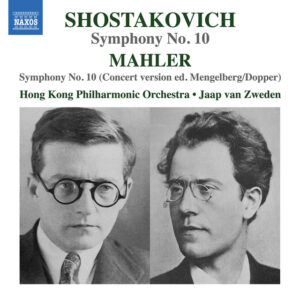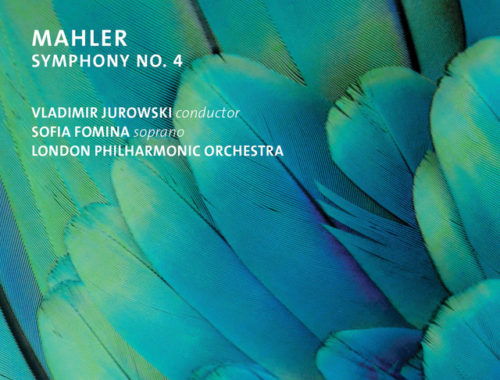GRAMOPHONE Review: Shostakovich Symphony No 10, Mahler Symphony No 10 – Hong Kong Philharmonic Orchestra/van Zweden

Mahler’s impact on those that followed him was greater than he would ever know. For Shostakovich it was the irony, the grand gesturing, the uncertainty of a symphonic tradition pushed to its limits. The two Tenths impact each other in interesting ways though quite why Jaap van Zweden would wish – other than out of sheer curiosity – to present the two completed movements of the Mahler in the so-called ‘concert edition’ made by Willem Mengelberg is a matter for conjecture.
We know that Mengelberg’s word on Mahler was taken as gospel by many, including Alma Mahler, but if ever re-touchings missed the point of what was actually on the page then these are they. Deryck Cooke recognised – in his performing version of the complete symphony – that Mahler was in effect stripping away more than he was adding and I find it curious that Mengelberg didn’t recognise or want to recognise the new direction he was taking. A sparer, starker, altogether more exposed Mahler with nowhere to hide. Repeatedly adding timpani and bass drum as ballast and generally fleshing out (through dynamics and/or doublings) what is best left skeletal is for me a presumption too far of how Mahler himself might have revised (or not) these two movements once the entire work was completed.
That said, van Zweden and the Hong Kong Philharmonic lay down an impressive foundation reaching out from the expectant and (for once) impeccably tuned viola line at the outset towards a sumptuous alliance of strings and horns in that gloriously expansive and aspirational theme. In short, the music sounds fleshier and more richly upholstered than I believe Mahler heard it in his mind’s ear. The monolithic starkness of that central climax, dissonance piled upon dissonance, is surely the more shocking for not being rammed home by percussion.
The Shostakovich is characterised by the same expansiveness – though van Zweden doesn’t do a Karajan by over-warming the darkest reaches of the string sound. It’s a chill wind that blows through these opening pages. Stalin waiting for a toe-tapping tune. I like, too, the way he accentuates the strenuous counterpoint driving the great central climax, the shrill demented woodwind choir giving the brass a run for their money.
But it’s all a little too deliberate for me – and the ferocious allegros of the second and fourth movements put weight before propulsion, the scherzo in particular losing its whirlwind quality. The threat of derailment.
So, an interesting and thoughtful coupling – though clearly I’m not at all sure that the reasons for bringing these pieces together is entirely realised in the performances.
You May Also Like

GRAMOPHONE Review: Mahler Symphony No. 4 – London Philharmonic Orchestra/Jurowski
12/09/2019
A Conversation With LUCY SCHAUFER
01/05/2013

